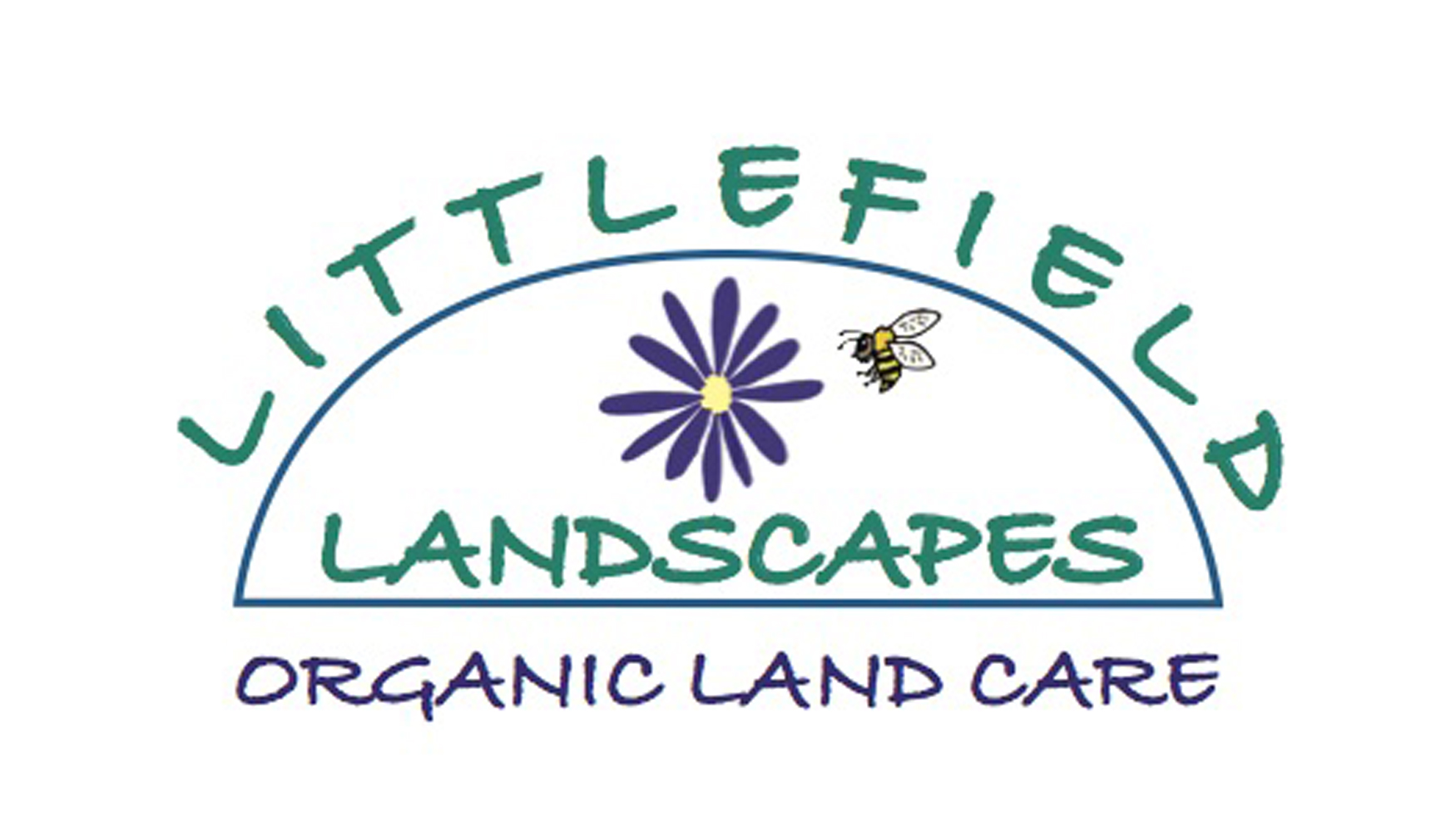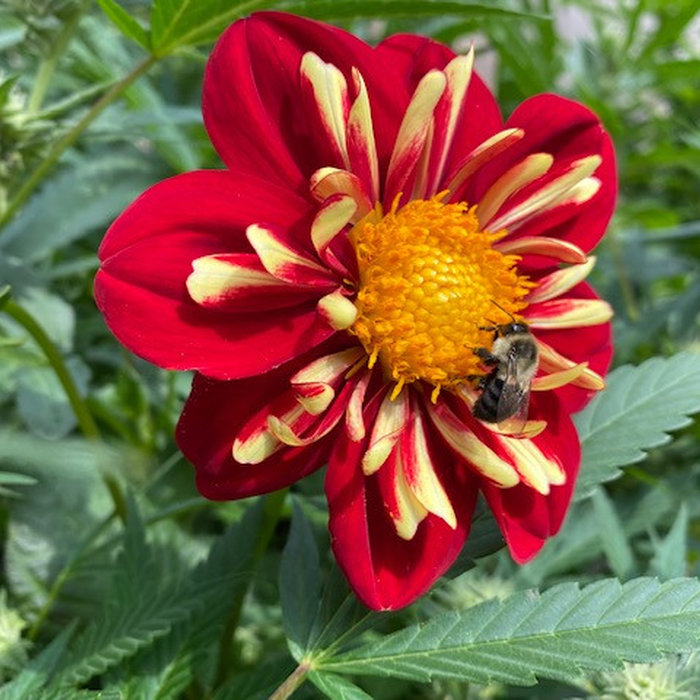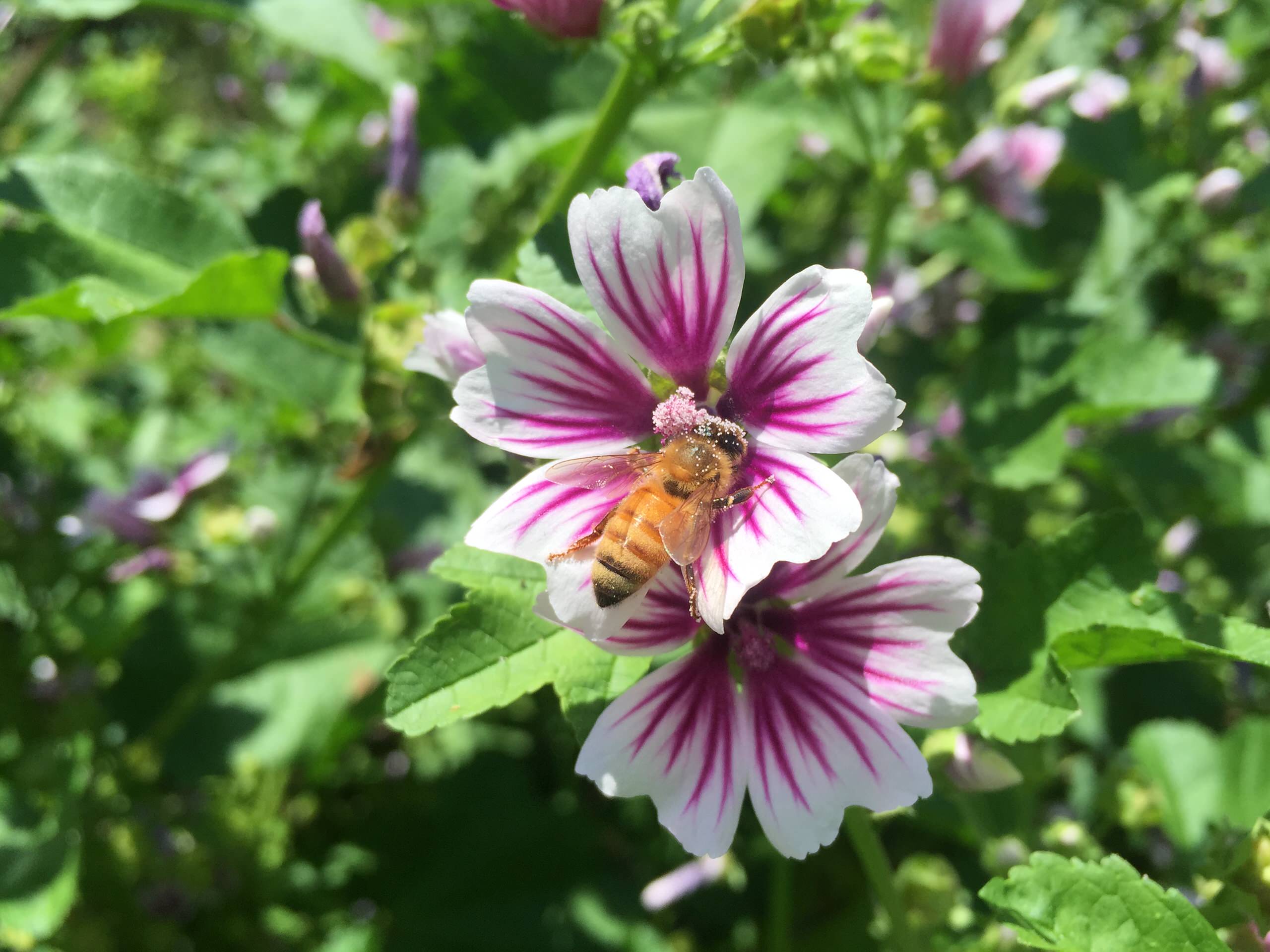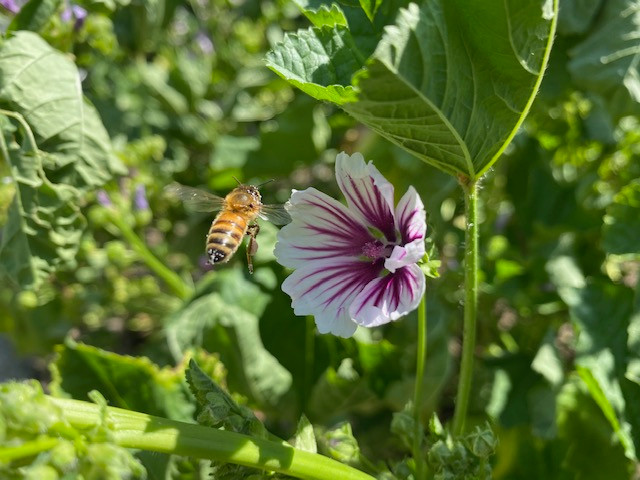
Be Kind To The Bee Kind!
Any vegetation that flowers to your property helps feed native pollinators.
On Cape Cod we can enjoy flowers throughout three seasons so set up your land for months of enjoyment while helping beneficial insects as well.
Did you know Honeybees are the most aggressive pollinators on Earth? That doesn’t mean they are mean, it means they complete the process of pollination more efficiently than any other pollinator on Earth. Cool, right?
*Honeybees are the most aggressive pollinators on Earth
*They enable the survival of plants and by extension us as well
*Honeybees are an essential part of all vegetation that is in our food chain
*Without honeybees vegetation will not survive
NO BEES = NO FOOD
Be non-toxic on your land to help our native pollinators survive!
WE MUST ALLOW OUR NATURAL POLLINATORS TO BE COMFORTABLE
In the environment
*Living a non-toxic lifestyle will help pollinators and our drinking water.
*Due to human impact our plants, water, air and soil need us to be non-toxic.
*Each one of us matters in the circles of life!
*Every day we make choices - make smart choices for a healthier future.
*We are the stewards of Cape Cod!
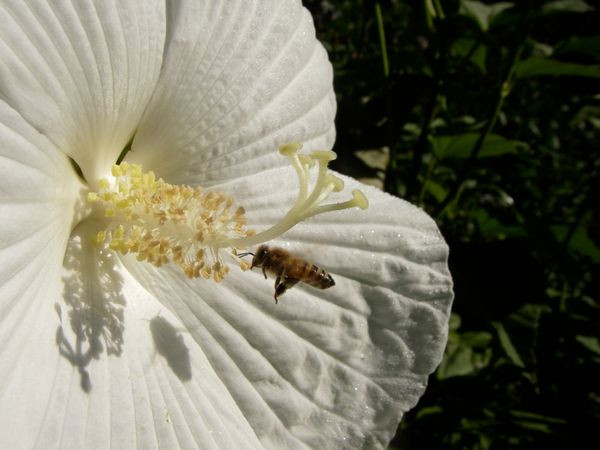
Bees....where the circle of life begins
Honeybees play a key role in Mother Earth’s survival. Responsible for the pollination (and thus the creation) of vegetation worldwide, their job is unequalled in nature. Without it, fruits, vegetables, trees and flowers would cease to exist—taking with them the source of all food and 30% of the planet’s oxygen.
Declining Populations
We’ve made it difficult for bees to survive by introducing toxins to their food, water and air.
Since 2006 more than half of all honeybees world wide have died. But this troubling trend can be reversed. Together, we can bring back the bees!
Please use this site to explore the beauty, life and preservation of honeybees.
